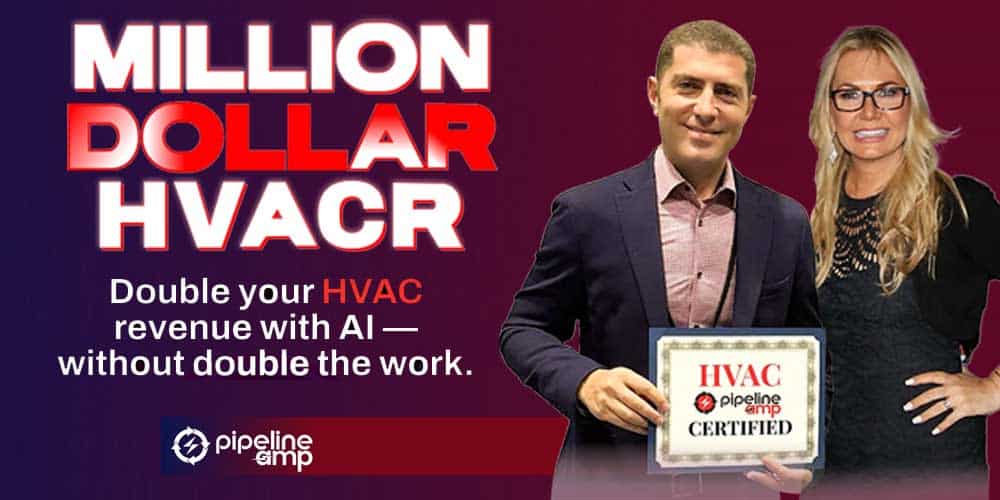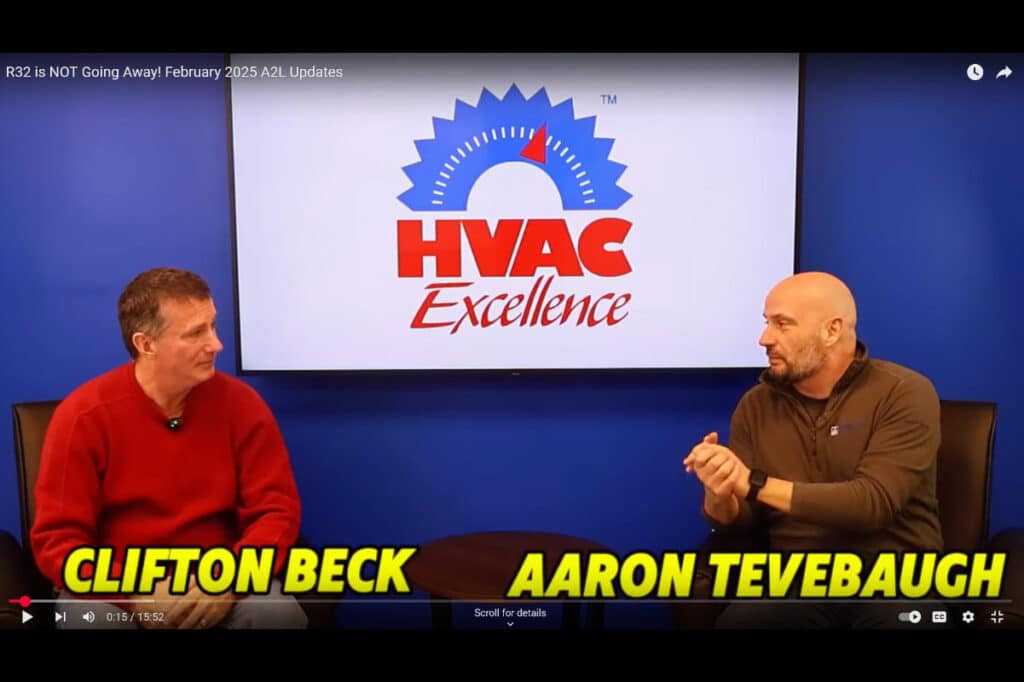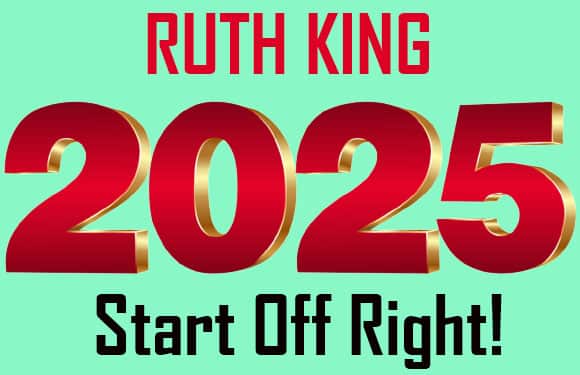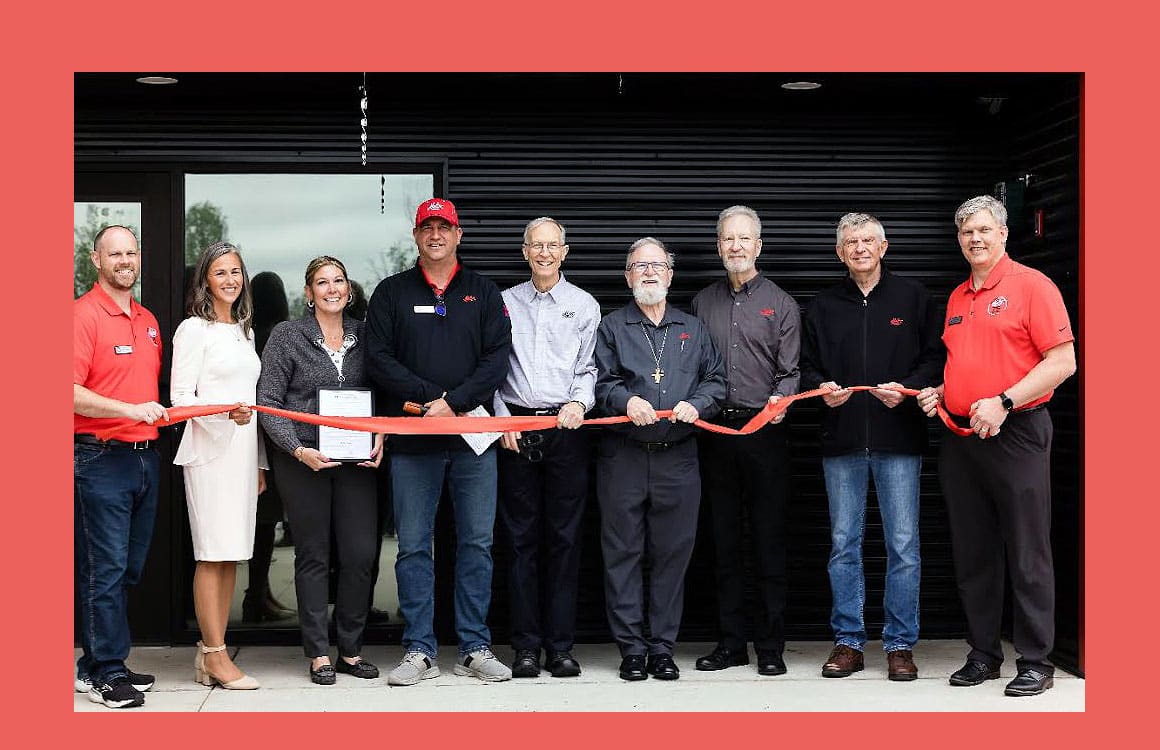Budget Update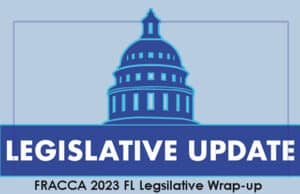
Legislators have reached agreement on a $116 billion spending plan for the coming fiscal year, and will take a vote on the measure this week ahead of an expected on-time end of the legislative session at the end of the week. House and Senate leaders have agreed on the final numbers for the budget, which will be $1 billion larger than what Gov. Ron DeSantis requested and bigger than what either chamber had initially proposed. The House’s initial budget proposal was $113 billion and the version passed by the Senate was $113.7 billion. Among the items included in the budget is a 5% raise for state employees, and a large increase in the amount of money available to the governor’s office to defend the state against lawsuits challenging new laws and policies. The governor’s office will get $6 million for that purpose while lawmakers are earmarking another $1.5 million for the Department of State to cover litigation costs. That’s more than six times what lawmakers have typically budgeted for legal representation and costs. The plan also includes $850 million for a new statewide wildlife corridor, and more than $600 million for other environmental efforts, including Everglades restoration and planned purchases of environmentally sensitive land. The budget also includes nearly $20 million for hiring and retention bonuses for corrections officers, along with $8.5 million for raises at private prisons.
Total Budget: $117 billion [$46.5 billion General Revenue; $70.5 billion Trust Funds]
Increased Reserves & Debt Reduction
- $10.9 billion Total Reserves
- $5.3 billion General Revenue Unallocated
- $4.1 billion Budget Stabilization Fund
- $1.4 billion added to the Emergency Preparedness and Response Fund
- $200 million to retire outstanding state debt
School District Workforce
Total: $675.8 million [$343.7 million GR; $291.9 million TF; $40.2 million tuition/fees]
- Workforce Development – $426.6 million
- Workload increase – $36.2 million
- Teacher Apprenticeship Program and Mentor Bonus – $4 million
- Student Success in Career and Technical Education Incentive Funds – $2.5 million 6
- Adult General Education Incentive Funds – $5 million
- CAPE Incentive Funds for students who earn Industry Certifications – $8.5 million
- Workload increase – $2 million
- Pathways to Career Opportunities Grant Program for apprenticeships – $20 million
- Increase for “Grow Your Own Teacher” Apprenticeship Program – $5 million
- Nursing Education Initiatives – $20 million
- No tuition increase
Key Bills
HB 1 Education (Rep. Plasencia/Sen. Simon) – Approved by Governor
This is the school voucher bill. For decades, Florida has been a national leader in providing high quality education options for its parents and students. In addition to a myriad of public options, Florida offers scholarship programs that allow parents of eligible students to register and attend private schools that may better serve a student’s particular needs or to provide educational options for students with disabilities. These programs primarily consist of the Florida Tax Credit Scholarship (FTC), the Family Empowerment Scholarship for students attending private school (FES-EO), and the Family Empowerment Scholarship for students with disabilities (FES-UA).
For all students receiving a FTC scholarship, the bill expands the authorized uses of FTC scholarship funds in an empowerment savings account to include:
Tuition and fees associated with full-time or part-time enrollment in a home education instructional program, an eligible postsecondary educational institution or a program offered by the postsecondary educational institution, an approved preapprenticeship program, a private tutoring program, a virtual program offered by a department-approved private online provider, the Florida Virtual School as a private paying student, or an approved online course.
HB 837 Civil Remedies (by Sen. Hutson/Sen. Hutson) – Approved by the Governor
The main purpose of Florida’s civil justice system is to properly and fairly redress the civil wrongs caused throughout the state, whether such wrongs be in the form of tortious conduct, breaches of contract, or other non-criminal harm for which the law provides a remedy. The civil justice system accomplishes this goal by providing a neutral court system empowered to decide the amount of monetary damages required to make each wronged person whole again. A functioning civil justice system, when it operates justly:
- Provides a fair and equitable forum to resolve disputes;
- Discourages persons from resorting to self-help methods to redress wrongs;
- Appropriately compensates legitimately harmed persons;
- Shifts losses to responsible parties;
- Provides incentives to prevent future harm; and
- Deters undesirable
HB 837 makes the following changes to Florida’s civil justice system:
- Changes Florida’s comparative negligence system from a “pure” comparative negligence system to a “modified” system, except for medical negligence cases, so that a plaintiff who is more at fault for his or her own injuries than the defendant may not generally recover damages from the defendant.
- Provides uniform standards to assist juries in calculating the accurate value of medical damages in personal injury or wrongful death actions.
- Modifies Florida’s “bad faith” framework to:
- Allow an insurer to avoid third-party bad faith liability if the insurer tenders the policy limits or the amount demanded by the claimant within 120 days after receiving actual notice of the claim.
- Clarify that negligence alone is not enough to demonstrate bad faith.
- Require a claimant to act in good faith with respect to furnishing information, making demands, setting deadlines, and attempting to settle the insurance claim.
- Allow an insurer, when there are multiple claimants in a single action, to limit the insurer’s bad faith liability by paying the total amount of the policy limits at the outset.
- Provides that a contingency fee multiplier for an attorney fee award is appropriate only in a rare and exceptional circumstance, adopting the federal standard.
- Provides that Florida’s one-way attorney fee provisions for insurance cases apply in limited situations.
- Requires the trier of fact in certain negligent security actions to consider the fault of all persons who contributed to the injury, establishes a presumption against negligent security liability in specified situations, and expands immunity for a property owner defending a lawsuit against a criminal actor who is injured on the property.
- Reduces the statute of limitations for general negligence cases from 4 years to 2 years. The bill may have a positive fiscal impact on state and local governments, and on private entities.
Priority Bills
SB 0360 Causes of Action Based on Improvements to Real Property (Sen. Hutson/Rep. Snyder) – Approved by Governor
SB 360 passed the Legislature on March 29 but wasn’t sent to DeSantis until April 13. With no fanfare or media attention DeSantis signed SB 360, sponsored by Sen. Travis Huston, into law. SB 360 reduces the time period for property owners to discover potential construction defects and bring causes of action against builders. The bill provides for earlier commencement dates by deleting a requirement that the property owner takes possession of an improvement to real estate before the clock starts ticking. The bill also reduces the statute of repose from 10 to seven years.
HB 1203 Registration and Transfer of HVAC Warranties (By. Rep. Maggard/Sen. Boyd) – PASSED
Generally, manufacturers provide a warranty for a Heating, Ventilation, and Air Conditioning (HVAC) system for 5 to 10 years. The manufacturer warranty covers parts that might fail such as the air compressor or furnace heat exchanger. The manufacturer will replace or repair any parts at no cost if the parts are covered under the warranty. If a residential real property is sold to another person, the warranty time may be cut short or may not be transferable to the new owner. In Florida, most manufacturer warranties are tied to a person instead of the property. The HVAC manufacturer warranty is tied to the original owner and does not transfer when the property is sold unless the previous owner transfers it to a new owner if that is an option under the warranty.
The bill:
- Provides that regardless of ownership, an HVAC manufacturer’s warranty runs with the property.
- Provides that an HVAC warrantor continues to be obligated under the terms of the warranty regardless of the property owner and may not charge a transfer fee.
- Provides that the transfer of an HVAC manufacturer warranty does not make the existing warranty term longer.
- Provides that such warranties are deemed registered if a licensed contractor meets certain requirements.
- Provides that a licensed contractor who installs a new HVAC system must document the installation through an invoice or receipt to the The bill does not appear to have a fiscal impact on local or state governments.
The bill provides an effective date of July 1, 2023.
HB 0089 Building Construction (Maggard) – PASSED
The bill:
- Prohibits a local government from making substantive changes to plans after a permit has been issued unless such changes are required under the Building Code, or Fire Prevention Code.
- Requires any changes a local government makes to plans after a permit has been issued to identify the specific parts of the plan that do not conform to the applicable code in writing.
- Requires a building official or inspector who asks another person or employee other than a building official, plans examiner, or inspector to review the building plans to notify the local government if such person or employee determines the plans do not comply with the Building Code.
- Requires a local fire official to notify the permit applicant of specific reasons why plans do not comply with the Fire Prevention Code.
- Allows a plans examiner, inspector, building official, or fire safety inspector to have their certificate disciplined for failure to notify the appropriate person of the reasons for making substantive changes to building plans.
The bill provides an effective date of July 1, 2023
HB 459 Education – DEAD
Requires high schools to offer certain computer science courses; provides requirements for such courses; revises requirements for a certain notification relating to Florida Bright Futures Scholarship Program; authorizes certain students to use Bright Futures Scholarship for certain certificate programs & apprenticeship programs; authorizes DOE to approve certain assessments for specified program eligibility requirements & revises provisions relating to work and service requirements for program.Effective Date: July 1, 2023
HB 461 Apprenticeship and Preapprenticeship Direct Funding Grant – DEAD
Apprenticeship and Preapprenticeship Direct Funding Grant Program: Creates Apprenticeship and Preapprenticeship Direct Funding Grant Program for specified purposes; requires DOE to administer program; provides requirements for such program. Effective Date: July 1, 2023
Ancillary Bills
SB 0948 Records Electronically Filed with the Department of State (By Sen. Grall/Rep. McFarland) – PASSED
SB 948 authorizes the Department of State (DOS) to implement a password protected system for the electronic filing of certain records. The bill also authorizes the DOS to require filers to produce supplemental materials to use such system. If the DOS implements such system, the bill requires DOS to send each e-mail address on file with the Division of Corporations on January 1, 2024, a code to participate in the system. This bill takes effect July 1, 2023.
SB 0256 Employee Organizations Representing Public Employees (Ingoglia) – PASSED
SB 256 enacts several new requirements of the employee organizations that represent public employees in collective bargaining. Specifically, the bill:
- Requires employees who wish to join certain employee organizations to sign a membership authorization form that is prescribed by the Public Employees Relations Commission (PERC), which must contain specific information.
- Requires specific employee organizations to allow a member to revoke his or her membership in the organization at any time, and without any reason.
- Allows the PERC to inspect specific employee organization’s membership authorization forms and membership revocation forms.
- Prohibits certain employee organizations from receiving their members’ dues and assessments via salary deduction from the members’ public employer.
- Expands the information required in an employee organization’s annual registration renewal with the PERC. This newly required information includes information that relates to the number and percentage of dues-paying members in each bargaining unit. In addition, the employee organization’s current annual financial report must be audited by an independent certified public accountant.
- Authorizes the public employer or an employee who is eligible for representation in the bargaining unit to challenge the application for registration The PERC must investigate to confirm the information submitted.
- Requires the employee organization to be recertified as the bargaining agent if the number of employees paying dues to the employee organization during the last registration period is less than 60 percent of the number of employees eligible for representation in the bargaining unit.
- Requires the certified bargaining agent to provide certain information to its members, including the annual costs of membership.
- Expands the prohibited activities by certain employee organizations and its representatives.
To implement its new responsibilities under the bill, the PERC is expected to incur roughly $900,000 of recurring expenditures. Otherwise, the bill is expected to have an indeterminate fiscal impact on local government expenditures.
The bill takes effect July 1, 2023.
SB 7026 Higher Education Finances (Appropriations Committee on Education) – PASSED
The bill passed both the House and Senate. The bill will then presented to the Governor. This was the bill that changed the procurement process for Universities, so they could put more emphasis on price. SB 7026 provides flexibility for state universities and colleges relating to the use of funds in the following areas:
- Removing restrictions on certain uses of carry forward fund balances, including caps on maintenance and remodeling projects and the requirement that funds only be used for nonrecurring operating expenditures;
- Removing the requirement that universities comply with certain procurement processes and authorizes the Board of Governor’s to establish procedures for universities to follow;
- Revises the limitation on the annual compensation of state university employees; and
- Authorizes state universities to waive out-of-state fees for student athletes receiving an athletic scholarship. This bill has no state fiscal impact. See Fiscal, section V.
- This bill takes effect July 1, 2023
House Amendment – 856631 removes from the bill the provision that, for State University System employees, the use of state funds for the award of a bonus may not exceed five percent of the employee’s salary.
HB 0869 Department of Business and Professional Regulation (McClain) – PASSED
The Department of Business and Professional Regulation (DBPR) is responsible for licensing and regulating various businesses and professions throughout the state, including asbestos and mold-related professionals, electrical contractors, pugilistic exhibitions, hotels, restaurants, alcoholic beverages, the Building Code, and timeshares. Related to mold-related and asbestos professional licensing regulations, the bill provides a pathway for a person who holds a license in another state to obtain a Florida license. Related to electrical contractors licensing regulations, the bill allows certain local electrical and alarm contractors to be licensed statewide. Related to pugilistic exhibitions, the bill removes the maximum participant weight differential requirement for all exhibition matches, to allow any exhibition to include participants who are not in the same weight category.
Related to public lodging establishments and public food service establishments, the bill:
– requires licensees to submit certain documents, fees, and communications online;
– allows notices to be served to the operator of a licensed establishment via email, in addition to in -person service and by mail; and
– allows the guest registry at a transient public lodging establishment to be kept online, and guests are no longer required to sign the registry.
Related to the Beverage Law, the bill allows package stores to sell nicotine products.
Related to the Building Code, the bill allows the Florida Building Commission to delay the effective date of the energy provisions for up to 3 months if energy code compliance software is not approved at least 3 months before the effective date of the updated Building Code.
Related to timeshares, the bill:
- revises certain provisions related to incidental benefits in the sale of a timeshare plan,
- extends the period for voiding certain unlawful contracts, from one year to five years, and
- provides that a developer is not required to file a separate public offering statement for any component site located within or outside Florida in order to include the component site in the multistate timeshare plan .
The bill has a positive fiscal impact on state government revenues. There is an indeterminate, but likely minimal negative fiscal impact on local governments and a positive fiscal impact on the private sector. See Fiscal Analysis & Economic Impact Statement.
The bill has an effective date of July 1, 2023.
HB 1383 Specialty Contractors (Trabulsy) – PASSED
The bill extends the expiration date for local licensing without general law authority to July 1, 2024. The bill requires the CILB, by July 1, 2024, to, by rule, establish certified specialty contractor categories for voluntary licensure for all of the following:
- Structural aluminum or screen enclosures.
- Marine seawall work.
- Marine bulkhead work.
- Marine dock work.
- Marine pile driving.
- Structural masonry.
- Structural prestressed, precast concrete work.
- Rooftop solar heating installation.
- Structural steel.
- Window and door installation, including garage door installation and hurricane or windstorm protection.
- Plaster and lath.
The bill provides that a local government may not require a license issued by the local government or CILB to perform a job scope which does not substantially correspond to one of the state contractor or specialty contractor categories. The bill prohibits local governments from requiring a license to obtain a permit for a job scope outside of the practice of contracting. The bill allows a county in an area designated as an area of critical state concern to continue to offer a license for any job scope which requires a statewide contractor license, or a local government to continue to offer a license for fence installation and erection, if such a licensing requirement existed before January 1, 2021. The bill provides that a local government may not require a license as a prerequisite to submit a bid for public works projects if the work to be performed does not require a license under general law. The bill will have an indeterminate, likely insignificant, negative fiscal impact on state government and does not appear to have a fiscal impact on local governments. See Fiscal Analysis & Economic Impact Statement. The bill provides an effective date of July 1, 2023.
SB 0250 Natural Emergencies (Martin) – PASSED
SB 250 makes various changes throughout Florida Statutes regarding the preparation and response activities of state and local government when natural emergencies impact the state. Specifically, the bill:
- Encourages local governments to create emergency financial plans in preparation for major natural disasters.
- Provides that counties and municipalities cannot prohibit a resident from placing a temporary residential structure on their property for up to 36 months following a natural emergency under certain circumstances.
- Authorizes local governments to create specialized building inspection teams following a natural disaster and encourages interlocal agreements for additional building inspection services during a state of emergency.
- Requires local governments to expedite the issuance of permits following a natural disaster.
- Increases the extension of certain building permits following a declaration of a state of emergency from six to 24 months and caps such extension at 48 months in the event of multiple natural emergencies.
- Prohibits counties and municipalities within the disaster declaration for Hurricane Ian or Hurricane Nicole from increasing building fees until October 1, 2024.
- Allows registered contractors to engage in contracting for the types of work covered by their registration within areas for which a state of emergency has been declared.
- Prohibits counties and municipalities within the disaster declaration for Hurricane Ian or Hurricane Nicole from adopting more restrictive or burdensome procedures to its comprehensive plan or land development regulations concerning review, approval, or issuance of a site plan, development permit, or development order before October 1, 2024.
- Makes the provision on the tolling and extension of permits following an emergency declaration retroactive to September 28, 2022.
- Makes the provision prohibiting local governments from proposing or adopting more restrictive or burdensome amendments to its comprehensive plan or land development regulations retroactive to September 28, 2022, instead of September 29, 2022.
- Prohibits local governments from proposing or adopting a moratorium on construction, reconstruction, or redevelopment of any property damaged by Hurricane Ian or Nicole before October 1, 2024, and applies it retroactively to September 28, 2022.
SB 0196 Guidance Services on Academic and Career Planning (Jones) – PASSED
SB 196 adds requirements to notify parents and students of career and academic planning options and work-based learning opportunities and pathways. The bill:
- Requires a middle grade student’s personalized academic and career plan to be developed in consultation with a certified school counselor, and include information on the career and technical education graduation pathway option and work-based learning opportunities.
- Expands the required annual school district parental notification on high school acceleration options to include information on career and academic planning options as well as foundational and soft-skill credentialing programs.
The bill takes effect July 1, 2023.
SB 1718 Immigration (Ingoglia) – PASSED
SB 1718 Immigration will:
- Requires all public employers use E-Verify, all private employers with 25 or more employees use E-Verify, and DEO to fine an employer that hires illegal immigrants $1,000 per worker, per day until the employer proves compliance with E-Verify;
- Enhanced penalties and license suspension or revocation for employers knowingly hiring unauthorized aliens;
- Enhanced criminal penalties for those caught engaging in the human smuggling of illegal immigrants, and makes human smuggling a second-degree felony;
- Provides the Florida Department of Law Enforcement with the necessary authority to coordinate with and provide assistance to the Federal Government in the enforcement of federal immigration laws, and response to immigration enforcement incidents within or affecting Florida;
- Florida will no longer recognize driver’s licenses exclusively issued to undocumented immigrants, and requires the Department of Highway Safety and Motor Vehicles (DHSMV) to issue citations and maintain a list of out-of-state classes of driver licenses that are invalid;
- Prohibits a county or municipality from providing funds to issue community identification cards for individuals not in the country lawfully;
- Requires persons who are in law enforcement custody and have been issued an immigration detainer would be required to submit DNA to the statewide database;
- Requires hospitals accepting Medicaid to collect data on the citizenship status of patients and report to the Agency of Health Care Administration (AHCA). The report may not disclose patient names or any other personal identifying information;
- Removes the authority for unauthorized immigrants to be admitted to the Florida Bar;
- Provides a $12 million nonrecurring appropriation to the Division of Emergency Management for the Unauthorized Alien Transport Program.
HB 0331 Liens and Bonds (Overdorf) – PASSED
- Modifies the notice of commencement, notice of termination, and notice of nonpayment forms.
- Allows licensed general or building contractors providing construction or program management services to claim construction liens for such services.
- Changes when a notice of termination must be recorded and served, and when such notice is effective.
- Modifies service requirements for documents required by the construction lien law.
- Modifies the available alternative forms of security that may be filed in lieu of a payment bond for public projects.
- Authorizes a person intending to make a claim against a payment bond to serve the surety with a copy of the notice of nonpayment, instead of an original document.
- Specifies that the methods for discharging a lien may also be used to release a lien, in whole or in part, and modifies the requirements for recording a satisfaction or release of lien with the clerk’s office.
- Increases the bond amount and documentation necessary to deposit or file with the clerk’s office to transfer a lien to a security.
- Entitles the prevailing party in an action to enforce a lien transferred to a security to recover reasonable attorney fees.
- Specifies that after a clerk’s office records a notice of contest of claim against a payment bond or a notice of contest of lien and a certificate of service for such notice, the clerk must serve a copy of the recorded notice on the lienor and on the owner or the owner’s attorney.
- Authorizes a building permit applicant to provide the issuing authority with the clerk’s office official records identifying information in lieu of a certified copy of the notice or a notarized statement of filing.
- Increases the contract amount which excuses a building permit applicant from filing a copy of the notice of commencement or an authorized alternative with the issuing authority, from $2,500 to $7,500.
- Provides a method for computing time periods for recording a document or filing an action under the construction lien law and tolls such time periods in emergency circumstances.
- Repeals 713.25, F.S., an outdated provision relating to the applicability of ch. 65-456, L.O.F.
- Modifies the definition of “clerk’s office” and defines “finance”
The bill provides an effective date of October 1, 2023.
SB 1154 Labor Pool Act (Perry) – PASSED
- SB 1154 amends the Labor Pool Act to provide that a labor pool satisfies the statutory requirements related to provision of restroom facilities and drinking water, if its labor hall facility complies with all minimum requirements for public restrooms and drinking fountains in the Florida Building Code. Alternatively, a labor pool may comply with the drinking fountains requirement by furnishing a water cooler or bottled water.
- The bill also requires that a worker aggrieved by a violation of the labor pool law provide written notice of the alleged violation and give the labor pool a reasonable opportunity to cure the alleged violation, before bringing a civil action. A civil action must be commenced within 1 year after the date that the aggrieved worker serves the written notice of alleged violation.
- The bill provides that the remedies specified in the Labor Pool Act are the exclusive remedies for violations of the duties and rights specified in s. 488.24, F.S.
- The bill takes effect July 1, 2023.
SB 0240 Education (Hutson) – PASSED
SB 240 specifies that each school board must provide all students in high school with the option to enroll in at least one work-based learning opportunity, which may include diversified education, preapprenticeships, and apprenticeships. Under the bill, schools, local workforce boards, community or faith-based organizations, and trade associations can sponsor student apprenticeships.
To create additional opportunities for work-based learning and apprenticeships in local communities, the bill establishes regional education consortia with representatives from local businesses and education institutions. The consortia would meet and report to the local workforce development board, with the goal of linking local educational programs to specific industry and employment needs in a community. The bill encourages business participation in work-based learning opportunities by streamlining the process for businesses to take advantage of workers’ compensation benefits for providing work-based learning opportunities to high school students.
The Department of Education would convene a workgroup to identify and develop secondary and postsecondary pathways to a career in CTE subject areas.
The bill provides $100 million for the Workforce Development Capitalization Incentive Grant Program for schools to fund the creation or expansion of career and technical education programs.
To adequately reward school districts for promoting CTE engagement in middle school, the bill removes a caps on bonus funding for middle school students who earn industry certifications. For more than a decade, Florida has provided additional funding for K-12 schools, state colleges, and career centers whose students earn industry certifications. SB 240 maintains this bonus funding, but provides a mechanism to link education to jobs in the economy with a higher incentive for certifications with higher anticipated wages. Moreover, bonus funding will be available for CTE dual enrollment courses that lead toward industry certifications and also when students complete a three-course sequential industry certifications in a program. To promote apprenticeships, the bill removes barriers in the administration of the Pathways to Career Opportunities Grant Program, which provides grants to establish or expand apprenticeship and preapprenticeship programs.
The bill requires the academic and career plan developed in middle school to teach students how to use Florida’s new online career planning tool, to keep students focused on postsecondary education and careers throughout middle and high school. Students who complete a middle school CTE program or an industry certification would have the opportunity to continue a sequential CTE program in the same concentration in high school if the program is offered by the school district at any high school in the district. In order to graduate from high school, students are currently required to complete at least one credit in fine or performing arts, speech and debate, or practical arts. The bill removes the practical arts requirement, and allows students to satisfy this graduation requirement by completing a CTE credit.
Additionally, options are expanded for students to earn credit toward high school graduation through extracurricular participation in career and technical student organizations such as the Florida Future Farmers of America and the Florida Future Educators of America.
Under the bill, school boards would inform parents with guidance on accessing and using Florida’s online career planning and work-based learning coordination system and the contact information of a certified school counselor who can advise students and parents on those options. This information will enable parents and students to have more informed conversations to help guide the student’s planning and decision-making about their education and career. The Office of Program Policy Analysis and Government Accountability will review approved statewide articulation agreements so students can be informed about how their CTE courses can translate to credit towards postsecondary degrees and professional certifications.
The bill provides flexibility from certification requirements for school boards in hiring non-degree teachers of career and technical education courses by providing flexibility from the 6-year experience and training requirements. A person who holds an industry certification in a subject matter area may serve as an adjunct teacher as an alternative to the requirement of passing a subject area exam. To recognize the tremendous work of our teachers, the bill also requires district school boards to give teachers credit toward continuing education requirements for supporting students in extracurricular career and technical education activities.
SB 0346 Public Construction (DiCeglie) – PASSED
SB 346 requires each contract for construction services between a local government entity and a contractor to include a list of items required to render complete, satisfactory, and acceptable the construction services contracted for which outlines the estimated cost of each item necessary to complete the work. The local government must pay all portions of the contract balance, except for 150 percent of the portion attributed to those projects on the list, within 20 days after the list is created, subject to certain exceptions. A local government must pay the contractor for the remaining list projects upon their total completion, subject to certain exceptions.
The bill limits local governments’ ability to withhold certain amounts under the contract to only those subject to a written good faith dispute or claims against public surety bonds. The bill shortens timeframes in which a disputed construction services contract must be resolved, and clarifies that a local government must pay the undisputed portions of a contract within 20 days. The bill makes similar conforming changes to construction services contracts with public entities.
The bill revises the definition of “public works project” to include any construction, maintenance, repair, renovation, remodeling, improvement, or portion thereof that uses any amount of state-appropriated funds. This will prohibit the political subdivision that undertakes the public works project that uses state- appropriated funds from imposing specified requirements on contractors. The bill may have a negative fiscal impact on local governments; however, the impact is indeterminate.
The bill takes effect July 1, 2023.
SB 0170 Local Ordinances (Trumbull) – PASSED
SB 170 pertains to the passage and challenging of local ordinances. It adds to the process for local governments passing ordinances and gives certain additional rights to those challenging local ordinances.
The bill requires counties and cities to produce a “business impact estimate” prior to passing an ordinance, with exceptions. The estimate must be published on the local government’s website and include certain information, such as the proposed ordinance’s purpose, estimated economic impact on businesses, and compliance costs.
Additionally, the bill imposes certain conditions on lawsuits brought by any party to challenge the legal validity of local ordinances as preempted by state law, arbitrary, or unreasonable. In these cases, the bill:
- Requires the local government to suspend enforcement of an ordinance of such legal challenge, under certain circumstances.
- Requires the court to give those cases in which enforcement of the ordinance is suspended priority over other pending cases and render a preliminary or final decision as expeditiously as possible.
- Provides that a court may award up to $50,000 in attorney fees to a prevailing plaintiff who successfully challenges an ordinance as arbitrary or unreasonable.
The bill also provides that properly noticed consideration of a proposed ordinance may be continued to a subsequent meeting under certain circumstances without further publication, mailing, or posted notice. The bill contains a finding of important state interest.
The bill takes effect October 1, 2023, except as otherwise provided.
SB 0154 Condominium and Cooperative Associations (Bradley) – PASSED
SB 154 revises the milestone inspection requirements for condominium and cooperative buildings that are three or more stories in height to:
- Limit the milestone inspection requirements to buildings that include a residential condominium or cooperative;
- Provide that the milestone inspection requirements apply to buildings that in whole or in part are subject to the condominium or cooperative forms of ownership, such as mixed-ownership buildings;
- Clarify that all owners of a mixed-ownership building in which portions of the building are subject to the condominium or cooperative form of ownership are responsible for ensuring compliance and must share the costs of the inspection;
- Require a building that reaches 30 years of age before December 31, 2024, to have a milestone inspection before December 31, 2024;
- Delete the 25-year milestone inspection requirements for buildings that are within three miles of the coastline;
- Authorize the local enforcement agencies that are responsible with enforcing the milestone inspection requirements the option to set a 25-year inspection requirement if justified by local environmental conditions, including proximity to seawater;
- Authorize the local enforcement agency to extend the inspection deadline for a building upon a petition showing good cause that the owner or owners of the building have entered into a contract with an architect or engineer to perform the milestone inspection services and the milestone inspection cannot reasonably be completed before the deadline; and
- Permit local enforcement agencies to accept an inspection and report that was completed before July 1, 2022, if the inspection and report substantially comply with the milestone requirements;
- Provide that the inspection services may be provided by a team of design professionals with an architect or engineer acting as a registered design professional in responsible charge; and
- Clarify that an association must distribute a copy of the summary of the inspection reports to unit owners within 30 days of its receipt.
The bill requires the Florida Building Commission to establish by rule a building safety program to implement the milestone inspection requirements within the Florida Building Code. The commission must specify the minimum requirements for the commission’s building safety program by December 31, 2024, including inspection criteria, testing protocols, standardized inspection and reporting forms that are adaptable to an electronic format, and record maintenance requirements for the local authority having jurisdiction.
The bill revises the requirement that all personal lines residential policies issued by the Citizens Property Insurance Corporation must include flood coverage to exempt unit owner policies from the flood insurance requirement.
The bill clarifies that both the condominium or cooperative unit owner and any person authorized by any owner as his or her representative may inspect the official records of the association.
The bill revises the reserve funding requirements relating to condominium and cooperative associations to:
- Require associations that are subject to the structural integrity reserve study (SIRS) requirement to base a budget adopted on or after January 1, 2025, on the findings and recommendations of the association’s most recent SIRS;
- Permit associations that are not subject to the SIRS requirement to waive reserves if approved by a majority vote of all voting interests;
- Permit multicondominium associations to waive reserves if an alternative funding method has been approved by the division; and
- Provide that reserve assessments may be adjusted for The bill amends the SIRS requirements to:
- Limit the SIRS requirement to residential condominiums and cooperatives;
- Clarify that the SIRS recommendation must include a reserve funding schedule;
- Delete “floor” from the list of building components that must be visually inspected in the SIRS;
- Permit the visual inspection portion of the SIRS to be verified by an engineer or architect;
- Permit persons who have been certified as a Reserve Specialist, or Professional Reserve Analyst by the Community Associations Institute or the Association of Professional Reserve Analysts to perform or verify the visual inspection portion of the SIRS;
- Exempt from the SIRS requirement:
- Single-family, two-family, or three-family dwellings with three or fewer habitable stories above ground; and
- Any portion or component of a building that has not been submitted to the condominium or cooperative form of ownership; or any portion or component of a building that is maintained by a party other than the condominium or cooperative association.
Effective July 1, 2027, the bill permits condominium and cooperative unit owners to use the mediation process in this section for specified disputes related to compliance with the milestone inspection or SIRS requirements.
The bill provides additional presale notice requirements in contracts for sales of a unit by a developer or nondeveloper. This provision is similar to current contract notices to unit owners obligated to furnish certain governing documents to the prospective buyer of a unit more than three days before closing for sales by a nondeveloper or 15 days before closing for sales by a developer. A contract that does not conform to these notice requirements is voidable at the option of the purchaser prior to closing. For the 2023-2024 fiscal year, the bill appropriates $1,301,928 in recurring funds and $67,193 in nonrecurring funds from the Division of Florida Condominiums, Timeshares, and Mobile Homes Trust Fund to the Department of Business and Professional Regulation, and to authorize 10 full time employees.
Except for the dispute resolution provisions that take effect on July 1, 2027, the bill takes effect upon becoming law.
HB 7063 Taxation (Ways & Means Committee) – PASSED
This was the Tax package.
- SHORT-TERM BROAD-BASED SALES TAX HOLIDAYS
- Establishes Two Back-to-School Sales Tax Holidays The legislation creates two, 14-day “back-to-school” sales tax holidays from July 24 – August 6, 2023, and January 1 – January 14, 2024, for clothing, footwear, and backpacks costing $100 or less, school supplies and learning aids costing $50 or less, and personal computers or computer related accessories, including non-recreational software, costing $1,500 or less.
- Establishes Two Two-Week 2023 Disaster Preparedness Sales Tax Holidays The legislation creates two 14-day “disaster preparedness” sales tax holidays from May 27, 2023 – June 9, 2023, and August 26, 2023, — September 8, 2023, for disaster preparedness Some examples of tax-free items include: flashlights and lanterns costing $40 or less; reusable ice costing $20 or less; radios costing $50 or less; tarps and ground anchors or tie down kits costing $100 or less; coolers and portable power banks costing $60 or less; batteries and fuel tanks costing $50 or less; smoke detectors, fire extinguishers, and carbon monoxide detectors costing $70 or less; and generators costing $3,000 or less.
- The holiday also includes a number of items related to the safe evacuation of household pets. Common household consumable items that may helpful with disaster cleanup are also For example, laundry detergent, toilet paper and paper towels, soap, sunscreen, and various household cleaning products, with a sales price of $30 or less.
- Expands Freedom Week to Freedom Summer, a 3-month Sales Tax Holiday on Recreational Items From May 29 – September 4, 2023, purchases of admissions to music, sporting, and cultural events; tickets to movies and museums; single admission or
- season tickets to theatre and dance performances; state park admission and annual passes; and use of fitness facilities will be tax Tickets, memberships and passes, purchased during this time for use from May 29 – December 31, 2023, are tax free.
- The Freedom Summer Sales Tax Holiday also applies to sales of certain boating and water activity equipment and supplies, camping equipment and supplies, fishing equipment and supplies, general outdoor supplies (including sunglasses, sunscreen, and grills), residential pool chemicals, supplies and parts, and children’s toys and athletic equipment.
- Establishes the 2023 Skilled Worker Tools Sales Tax Holiday The legislation creates a seven-day sales tax holiday from September 2 – 8, 2023, for certain tools used by skilled trade workers. Tax-free items include certain hand and power tools, work boots, safety equipment, shop lights, toolboxes and belts, and plumbing and electrical equipment.
- Sales Tax Free Gas Stoves, and Energy Efficient Appliances The bill creates a one-year sales tax exemption from July 1, 2023 – June 30, 2024, on the retail sale of indoor gas ranges and stoves and certain energy efficient appliances including refrigerator/freezer units selling for $4,500 or less, and water heaters, washers or dryers selling for $1,500 or less.
- Freezes Local Cell Phone and TV Tax The bill freezes local communications services tax rates for three The local communications services tax rate in effect on January 1, 2023, may not be increased before January 1, 2026






